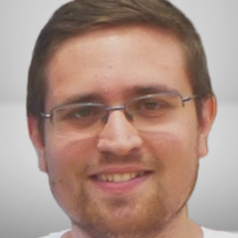
Ricard Rosich Argelich
Historiador y profesor. Investigador Predoctoral FPU en Historia Contemporánea. Miembro del Centre d'Investigacions Film-Història y del Centre d'Estudis Històrics Internacionals, Universitat de Barcelona
Historiador y profesor. Investigador Predoctoral FPU en Historia Contemporánea. Miembro del Centre d'Investigacions Film-Història y del Centre d'Estudis Històrics Internacionals. UB - Universitat de Barcelona.
Less ![]()
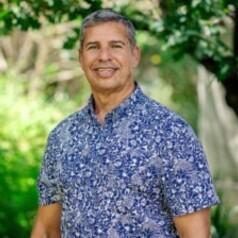
Ricardo Amansure
Senior Researcher at the Centre for Sustainability Transitions, Stellenbosch University
Dr Ric Amansure's field of research is sustainable development, sustainability transitions, renewable energy, ESG, and smart cities.
Dr Amansure has a diverse educational background. He completed his PhD, which focused on revenue management to beneficiary communities in the renewable energy sector, and has an extensive professional history, including serving as CEO of MercyShips Southern Africa and working as a corporate social responsibility consultant. He has also made notable contributions to the renewable energy sector, pioneering innovative approaches in socio-economic development, enterprise development, and public-private partnerships. He was the head of communications, fund- and business development at the Institute for Justice and Reconciliation, overseeing fundraising, business development initiatives, and the organisation’s media and branding efforts. He works at the Centre for Sustainability Transitions as senior researcher.
Less ![]()

Ricardo J. Soares Magalhaes
Professor, School of Veterinary Science, The University of Queensland
Ricardo J. Soares Magalhães is Professor of Zoonotic Disease Epidemiology and Biosecurity and Director of the Queensland Alliance for One Health Sciences. Prof. Soares Magalhaes is a European Veterinary Board Specialist in Population Medicine with extensive national and international research experience in three main areas: spatial epidemiology of zoonotic infections, outbreak response for emerging infectious diseases and risk assessment of animal’s environmental health/biosecurity. A key focus of his team's current research is to develop geographical risk assessment methods to assist disease prioritisation for improved surveillance and risk management in both human and animal populations.
Prof. Soares Magalhães’s team is currently leading the development of a number of nationwide epidemiological data analytics platforms including for zoonotic influenza (WHO SEARO, WHO Nepal), antimicrobial resistance in agribusinesses and the environment (CRC SAAFE) and veterinary clinical data (VARDC and ACARCinom).
Less ![]()
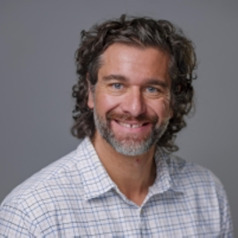
Ricardo Safra de Campos
Senior Lecturer in Human Geography, University of Exeter
Dr. Ricardo Safra de Campos is Senior Lecturer in Human Geography at the University of Exeter working on population movements in the context of climate change, with a research focus on migration, sustainability and wellbeing. His work has been published in interdisciplinary journals including Nature Climate Change, Proceedings of the National Academy of Sciences (PNAS), Global Environmental Change, Current Opinion in Environmental Sustainability, and discipline-specific such as Population, Space and Place. He is a contributing author on the Intergovernmental Panel on Climate Change (IPCC) Special Report on the Ocean and Cryosphere in a Changing Climate. Ricardo gave expert oral evidence on migration and climate change to EU Home Affairs Sub-Committee of the UK’s House of Lords in 2020. He serves on the advisory board of international research and policy initiatives on climate-related displacement in Africa, Asia and the Caribbean; and is on the editorial board for the journals Climatic Change; PLOSClimate; and Climate Mobilities, Frontiers in Climate.
Less ![]()
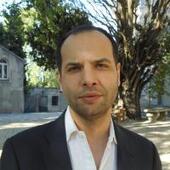
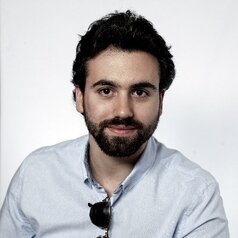
Riccardo Gasco
PhD Candidate, Università di Bologna
Riccardo Gasco is a doctoral student in Political and Social Sciences at the University of Bologna. Currently he is a Visiting Research Fellow at Sabanci University. He holds a background in International Relations and Diplomatic Sciences, which he obtained from the University of Genoa and the School of Oriental and African Studies in London. His current research interests are focused on Turkey's foreign policy, the Middle East, and Turkey's relations with NATO and Russia. His research project investigates the foreign policy behavior of emerging middle powers, using Turkey as a case study. He divides his time between Italy and Turkey for research and work purposes.
Less ![]()
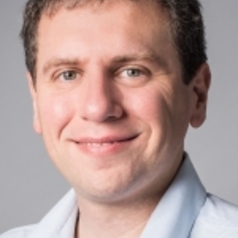
Riccardo Paolini
Associate Professor, School of Built Environment, UNSW Sydney
Riccardo by training is a building engineer and he received a Ph.D. in Building Systems Engineering from Politecnico di Milano, Italy, in 2011. He joined UNSW Built Environment in February 2017.
He is an Associate Professor in the High Performance Architecture research cluster, where he is also the manager of the HPA Lab. Riccardo is also an affiliate of the Heat Island Group, Lawrence Berkeley National Laboratory, Berkeley, CA, USA.
Previously, he had an appointment as post-doc at Politecnico di Milano, Italy (2011-2017). He had been teaching heat and moisture transport in building envelope applications at Politecnico di Milano at postgraduate level for six years. He now teaches in the Architecture Program at the School of Built Environment.
Less ![]()

Riccardo Maria Bianchi
Particle Physicist working at CERN on the ATLAS experiment, Research Associate, University of Pittsburgh
Riccardo Maria BIANCHI is a physicist, PhD; he specializes in experimental particle physics.
Since 2008 he is based full-time at CERN (Geneva, Switzerland), where he works on the ATLAS Experiment handling, analyzing, and visualizing data from the collisions in the Large Hadron Collider (LHC).
He is currently a Research Associate, Faculty member of the Department of Physics & Astronomy of the University of Pittsburgh.
Dr. Bianchi is currently “Physics Validation” and “Data Visualization” coordinator of the ATLAS experiment, and member of the ATLAS Collaboration at CERN since 2005.
In the last 18 years, his research focused on Searches for supersymmetric particles and extra dimensions, model-independent searches for New Physics, muon detectors, data acquisition, development of scientific software & parallel computing, interactive data visualization, detector description & simulation, and virtual reality for science and education.
He is a contributor of the university textbook "Applied Computational Physics", published by Oxford University Press in 2017.
Dr. Bianchi is member of the European Physics Society (EPS) and the Societa Italiana di Fisica (SIF), and ex-member of the Deutsche Physikalische Gesellschaft (DPG). He is also the founder of the "Quantum Computing" and "Visualization" working groups of the High Energy Physics Software Foundation (HSF).
He is also active in Outreach and science communication projects, and as a scientific advisor for the organization of public exhibitions around the world: the latest two are "Cultural Collisions" at the Ontario Science Center in Toronto (Canada, 2018) and "Sperimentando 2018" in Pavia (Italy, 2018).
Less ![]()
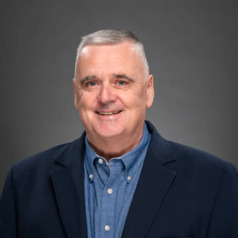
Rich Hanley
Professor Emeritus of Journalism, Quinnipiac University
Richard Hanley is a Professor Emeritus of Journalism at Quinnipiac University in Hamden, Connecticut.
A graduate of the University of New Haven and Wesleyan University, he served as a journalist for local, national, and global media for 23 years in print, television and online before joining Quinnipiac in 2001. He has produced, written, and directed Emmy-nominated documentaries for CPTV and PBS. He founded the Sports Journalism graduate program at Quinnipiac and served as co-director of Sports Studies, an interdisciplinary minor.
Less ![]()
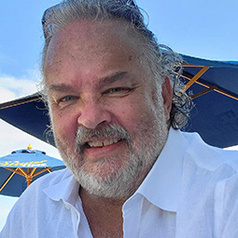
Rich Harrill
Research Professor of Hospitality and Tourism and Director, International Tourism Research Institute, University of South Carolina
Rich Harrill has a strong record of success in and an international reputation for leveraging his academic and professional experience combining tourism with economic development and urban planning to drive local, regional, national and international business, tourism and economic growth. Harrill brings an industry-driven business mode and academic entrepreneurship to the university level.
Currently, in his role as director of the International Tourism Research Institute (ITRI) at the University of South Carolina, Harrill conducts studies on applied research to provide practical solutions to increase U.S. and international tourism industry competitiveness, resulting in additional revenues and strong economic development opportunities.
Harrill has focused extensively on international tourism and economic development. He collaborated with the U.S. Travel Association and the U.S. Department of Commerce, Office of Travel and Tourism Industries on the definitive study of future Chinese outbound tourism to the U.S., potentially leading to additional tourism dollars for both China and the United States. In doing this research, he directly influenced both U.S. and China federal policies to enable cultural and research exchanges. He is currently working with the U.S. Department of Commerce, Office of Travel and Tourism on a study of the recent decline in Japanese tourists to the United States. He also has conducted additional research in the Dominican Republic on tourism development, and accepted a two-month appointment as a visiting professor at the University of Aruba.
Harrill earned his Ph.D. in parks, recreation, and tourism management and his master's degree in city and regional planning from Clemson University. He holds a B.A. in political science from the College of Charleston. He has published his research in urban planning's top three journals: the Journal of American Planning Association, Journal of Planning Education and Research and Journal of Planning Literature. The Journal of the American Planning Association is the top-ranked journal for urban studies and number-two ranked journal for planning and development.
Harrill edited Fundamentals of Destination Management and Marketing (American Hotel and Lodging Association, 2005), the first comprehensive textbook for the destination management industry. He is also co-editor of the International Journal of Culture, Tourism and Hospitality Research and research notes editor of Tourism Analysis.
Less ![]()
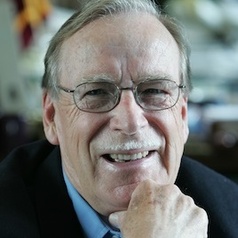
Richard A. Easterlin
Richard A. Easterlin is currently University Professor and Professor of Economics, University of Southern California. He is a member of the National Academy of Sciences and a Distinguished Fellow of the American Economic Association. He is also a Fellow of the American Academy of Arts and Sciences, the Econometric Society, and the Institute for the Study of Labor (IZA), and is a former president of the Population Association of America, Economic History Association, and Western Economic Association International.
He is the author, among other things, of Happiness, Growth and The Life Cycle (2010), The Reluctant Economist (2004), Growth Triumphant: The 21st Century in Historical Perspective (1996), and Birth and Fortune: The Impact of Numbers on Personal Welfare (1980; 2nd ed. 1987), and editor of Happiness in Economics (2002).
His current research is on the association between economic growth, public policy, and subjective well-being.
Less ![]()
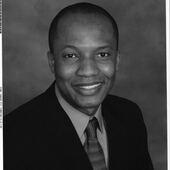
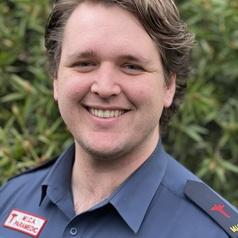
Richard Armour
PhD Candidate, Monash University
Critical Care Paramedic interested in novel roles for paramedics integrated in healthcare. Current Doctoral Candidate at Monash University exploring the role of paramedics in providing care to people who use substances.
Less ![]()
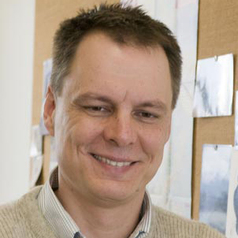
Richard Arnold
Professor of Statistics and Data Science, Te Herenga Waka — Victoria University of Wellington
I began my research career as an astronomer, and graduated with a PhD in Astronomy in 1991. After four years of postdoctoral research I moved into statistics - first in epidemiology, then working in official statistics and survey design, and in recent times working on a variety of applied statistics problems, I collected an MSc in Statistics and Operations Research along the way.
I am a member of the Centre of Research Excellence "Te Punaha Matatini", funded by the Tertiary Education Commission.
Less ![]()
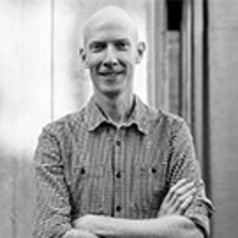
Richard Ballard
Chief Researcher: Gauteng City-Region Observatory, Wits University and University of Johannesburg, University of the Witwatersrand
Richard Ballard trained in the field of geography at the University of KwaZulu-Natal and the University of Wales, Swansea.
One of his research themes is on the relationship between the ideals of spatial transformation and real world processes that produce urban space. Under this theme he has published on attempts by developers to secure permission to build major projects; the policy turn to mega projects within the public housing sector; the role of construction labour in producing walled suburbs and the production of space in Gauteng Province.
A second area of interest is the way in which residents of South Africa's cities form identities in relation to the places where they live and the people who share these spaces. Publications on this theme are on white responses to urban desegregation, gated communities, the place of plants and animals in cities, social cohesion and changing scales of identification.
A third area of interest is urban governance and politics, with publications on local government elections, participatory governance processes, social movements and everyday resistance.
Recent publications
Ballard, R., and Barnett, C. (eds) (2023). The Routledge Handbook of Social Change. Abingdon: Routledge.
Ballard, R., and Barnett, C. (2023). ‘Apprehensions of Social Change’. In Richard Ballard and Clive Barnett (eds) The Routledge Handbook of Social Change. Abingdon: Routledge, pp. 1-16.
Ballard, R. (2023). ‘Everyday resistance: theorising ow the “weak” change the world’. In Richard Ballard and Clive Barnett (eds) The Routledge Handbook of Social Change. Abingdon: Routledge, pp. 303-314.
Ballard, R., and Mapukata, C. (2022). South African Urban Imaginaries. GCRO Research Report 13. Johannesburg: Gauteng City-Region Observatory.
Ballard, R., Butcher, S., Joseph, K., de Kadt, J., Hamann, C., Mapukata, S., Mkhize, T., Mosiane, N., Parker, A., and Spiropoulos, L. (2021). ‘Scale of Belonging: Gauteng 30 Years After the Repeal of the Group Areas Act’. Urban Forum. 32(2), pp. 131-139.
Ballard, R., Jones, G.A., and Ngwenya, M. (2021). ‘Trickle-out urbanism: Are Johannesburg’s gated communities good for their poor neighbours?’ Urban Forum. 32(2), pp. 165-182.
Ballard, R., Hamann. C., and Mkhize., T. (2021). ‘Johannesburg: Repetitions and Disruptions of Spatial Patterns’. In Lemon, A., Donaldson, R. and Visser, G. (eds) South African urban change three decades after apartheid: Homes Still Apart? Cham, Switzerland: Springer, pp. 33-55.
Ballard, R., and Hamann, C. (2021). ‘Socio-Economic Segregation and Income Inequality in the City of Johannesburg’. In Maarten van Ham, Tiit Tammaru, Ruta Ubarevičienė and Heleen Janssen (eds) Urban Socio-Economic Segregation and Income Inequality. Cham, Switzerland: Springer. pp. 91-109.
Ballard, R., Hamann, C., and Mosiane, N. (2021) Spatial Trends in Gauteng. GCRO Occasional Paper 19.
Ballard, R., and Butcher, S. (2020). ‘Comparing the relational work of developers’. Editorial. Environment and Planning A: Economy and Space. 52(2), pp. 266-276.
Ballard, R., and Harrison, P. (2020). ‘Transnational Urbanism Interrupted: A Chinese developer’s attempts to secure approval to build the “New York of Africa” at Modderfontein, Johannesburg’. Environment and Planning A: Economy and Space. 52(2), pp. 383-402.
Ballard, R., (ed) (2019) Social Cohesion in Gauteng. GCRO Research Report # No 10. Johannesburg: Gauteng City-Region Observatory.
Ballard, R. and Harrison, P. (2019). 'Transnational urbanism interrupted: A Chinese developer’s attempts to secure approval to build the ‘New York of Africa’ at Modderfontein, Johannesburg.' Environment and Planning A. 52(2).
Ballard, R., Dittgen, R., Harrison, P. and Todes, A. (2017). ‘Megaprojects and urban visions: Johannesburg’s Corridors of Freedom and Modderfontein’. Transformation. 95.
Ballard, R. and Rubin, M. (2017). ‘A “Marshall Plan” for human settlements: how megaprojects became South Africa’s housing policy’. Transformation. 95.
Ballard, R. (2017). ‘Prefix as policy: megaprojects as South Africa’s big idea for human settlements’. Transformation. 95.
Ballard, R. (2017). ‘Governance and development’. In Douglas Richardson, Noel Castree, Michael F. Goodchild, Audrey L. Kobayashi, Weidong Liu Richard Marston (eds.) The International Encyclopaedia of Geography: People, the Earth, Environment, and Technology. London: Wiley-Blackwell.
Ballard, R. (2016). 'Whiteness and the end of apartheid - Review of Falkof, Nicky (2015) Satanism and Family Murder in Late Apartheid South Africa: Imagining the End of Whiteness. Houndmills: Palgrave Macmillan'. Journal of Southern African Studies. 42(5), 1021-1022.
Ballard, R., Nel, W., Hill, T. and Maharaj, B. (2016). 'South African Geography at 100'. South African Geographical Journal. 98(3), 403-404.
Ballard, R. (2016). Review of Daniel Conway and Pauline Leonard (2014). 'Migration, space and transnational identities: the British in South Africa', Ethnic and Racial Studies. 39(13), pp. 2427-2429.
Ballard, R. (2016). ‘Community and the balkanization of social membership’. Dialogues in Human Geography. 6(1), pp. 78–81
Ballard, R. (2015). ‘Geographies of development III: militancy, insurgency, encroachment, and development by the poor’. Progress in Human Geography. 39(2), pp. 214–224
Less ![]()
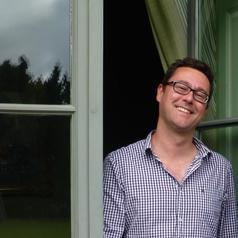
Richard Barnes
Professor of Law, University of Hull
Director of the McCoubrey Centre for International Law. Interests in law of the sea, maritime law, and the marine environment. member of Hull Maritime and Marine Institute
Less ![]()

Richard Bärnthaler
Lecturer (Assistant Professor) in Ecological Economics, University of Leeds
Less ![]()
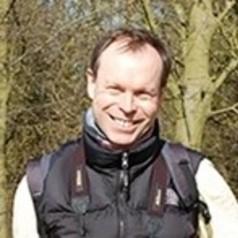
Richard Barrett-Jolley
Professor of Neuropharmacology, University of Liverpool
Since the start of my DPhil until the time of writing this my focus has been the study of ion channels in health and disease: The pharmacology, modelling the function, physiology and the biophysics of ion channels.
Machine learning. AI
Less ![]()

Richard Bayliss
Professor of Molecular Medicine, School of Molecular and Cellular Biology, University of Leeds
I’m a structural biologist and Professor of Molecular Medicine at the University of Leeds. My team studies the functions and interactions of proteins using structural, cell, chemical and computational biology approaches. We work towards understanding the molecular mechanisms that underpin cellular functions and how these events are altered in human diseases such as cancer. In partnership with other scientists, we develop precision drugs that are tailored to individual proteins.
Less ![]()

Richard Bevan
Senior Lecturer in Biology, Newcastle University
My research interests are broad and cover the basic physiological processes of an animal up to those occurring at the animal-environment interaction. Underpinning my work is the use of remote monitoring technology such as heart rate monitoring, electronic data archival devices and satellite telemetry. Specific areas of study include: the physiology, ecology and behaviour of aquatic animals; energy expenditure of free-ranging animals; foraging behaviour of seabirds; use of stable isotopes to study animal ecology; spatial movements of animals; animal conservation.
Less ![]()
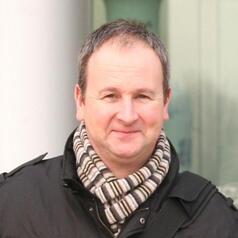
Richard Birtles
Professor, School of Science, Engineering & Environment, University of Salford
My work explores the strategies adopted by infectious agents, at the individual and population level, to persist in nature, in particular those microorganisms that are arthropod transmitted. These efforts have centred on organisms of public health and veterinary importance, including the tick-transmitted Borrelia and Anaplasma species, and flea and louse-transmitted members of the bacterial genus Bartonella. Recent/ongoing projects include examination of the adaptation of A. phagocytophilum and B. burgdorferi strains to specific transmission pathways within natural multi-host, multi-vector system, quantification of genome-wide diversity within Bartonella species, and exploration of the molecular basis of arthropod exploitation by Bartonella species. I also have a slow-burning interest in the role of amoeba and other free-living protists as environmental hosts for pathogens. I also like to trawl the blood-steam of animals from near and distant corners of the planet in search of new haemoparasitic bacteria and protozoa; please get in touch if you can help out!
I have been lucky enough to be part of a long-standing collaborative team, including scientists at the Universities of Aberdeen, Liverpool and Nottingham, interested in infectious disease ecology and using a model system of wild field vole (Microtus agrestis) populations to explore the influence of parasites on host population dynamics and host susceptibility to co-infectors, and the strategies adopted by hosts to counter parasitism
Less ![]()
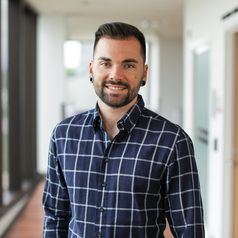
Richard Bloomfield
Assistant Professor in Management and Organizational Studies at Huron University College, Western University
Richard Bloomfield is passionate about improving the environmental and social sustainability of food production and has taught numerous business management and entrepreneurship courses at the undergraduate level. In addition, he co-founded Urban Roots London in 2017, a non-profit urban farm that is addressing issues around food access. In late 2019 he co-founded Sidetrack: A Wortley Café where many of his passions intersect. Richard completed a Bachelor of Arts in Globalization Studies and his HBA from the Ivey Business School. Later he completed a Masters of Business Administration from Ivey as well.
He is currently a PhD candidate in the Geography and Environment department at Western University studying the political economy of agro-food systems and examining current farmland policy, ownership dynamics, and alternative land-use models to support next or first-generation farmers in Ontario.
Less ![]()

Richard Bott
PhD Candidate, Department of History and Archaeology, Macquarie University
I am a PhD candidate in the Department of History and Archaeology at Macquarie University. My research focuses on archaeological fakes and forgeries, provenance, and the antiquities trade.
Some research papers:
Bott, R. (in press). ‘Miscellaneous Fragments’ and ‘Specimens of the Faker’s Art’: Fake Papyri and the British-American Papyrus Syndicate. Bulletin of the American Society of Papyrologists.
Bott, R. (in press). “A Perplexed Crocodile” and Other Sculptures: Some Sheikh Ibada Fakes in the Rijksmuseum van Oudheden, Leiden. Journal of Egyptian Archaeology.
Bott, R. (in press). Cataloguing Authenticity: Exploring Collection Engagement with Forged Papyri through Online Catalogues. In E. Smith & S. Austin (Eds.). Researching a Rigged Game: Open-Source Data and the Trade in Cultural Heritage. Cham, Switzerland: Springer.
Less ![]()
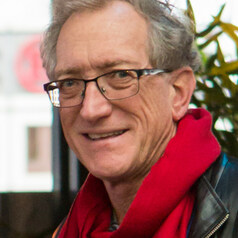
Richard Broome
Emeritus Professor - History, La Trobe University
Richard Broome AM is Emeritus Professor in History at La Trobe University and President of the Royal Historical Society of Victoria. He is the author of 16 books, including Aboriginal Australians. A History since 1788 5th edition (2019) and Aboriginal Victorians. A History since 1800 (2005). He has consulted for the RCADIC, Museums Victoria and The National Museum of Australia.
Less ![]()
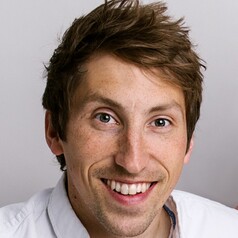
Richard Buka
Haematology Registrar and Clinical Research Fellow, University of Birmingham
I am a haematology doctor and clinical research fellow at the University of Birmingham. I am currently undertaking my PhD studying the mechanisms by which platelets are activated in vaccine-induced immune thrombocytopenia with thrombosis, a new disorder that emerged as a consequence of adenoviral vector vaccination against COVID-19. I am passionate about collaborative research and research skills training and chair HaemSTAR, the UK's network of haematology registrars interested in non-malignant haematology. I also make a regular podcast called Don't Just Read the Guidelines where I interview, and give a platform to, up and coming doctors and scientists to share their work and ideas. If you would like to read more from me, head to my blog: classicalcompass.substack.com.
Less ![]()
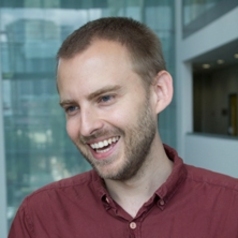
Richard Cook
Senior Lecturer in Psychology, City University London
Dr Cook completed his PhD in Cognitive, Perceptual and Brain Sciences at University College London before taking up a faculty position at City University London in February 2012. He is an ESRC Future Research Leader and Winner of the British Academy's Wiley Prize in Psychology.
Less ![]()
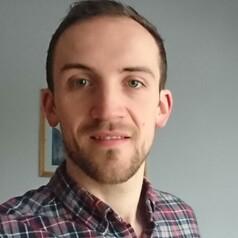
Richard Cornford
Research Scholar, International Institute for Applied Systems Analysis (IIASA)
Richard is a research scholar at IIASA, currently working to evaluate the impacts that alternative future land-use scenarios could have on European biodiversity via ecological modelling.
He previously completed his PhD at Imperial College London/ZSL/NHM, where he used quantitative approaches (including text-analysis) to better collate and synthesise global biodiversity data and improve our understanding of ecological responses to human activity.
Less ![]()
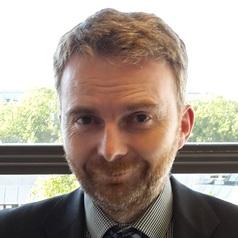
Richard Douglas
Research fellow of the Centre for the Understanding of Sustainable Prosperity, Goldsmiths, University of London
Richard McNeill Douglas is research fellow of the Centre for the Understanding of Sustainable Prosperity (CUSP) at the University of Surrey, and an associate fellow of the Political Economy Research Centre at Goldsmiths, University of London. He specialises in using interpretive social science to make sense of our social commitment to indefinite growth in the face of environmental limits. He has
Less ![]()
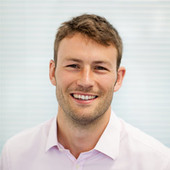

Richard Egan
Associate Professor in Health Promotion, University of Otago
My research interests include supportive care in cancer, health promotion, aged health care, assisted dying, spirituality, and hospice or palliative care.
Less ![]()
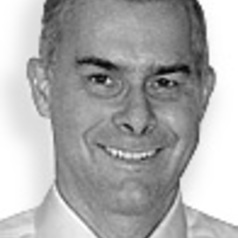
Richard Fairchild
Senior Lecturer in Corporate Finance, University of Bath
I have recently become associate member of the Aston Centre for Research in Experimental Finance (ACREF). I am a member of the SAFE (Seminars in Accounting and Finance) research network. I have recently been appointed as editor-in-chief for the International Journal of Behavioural Accounting and Finance, which is launching in 2008.
My current research interests include: application of game theoretical tools to strategic corporate finance; capital structure and the effects of agency problems, signalling, and product market competition; venture capitalism, bargaining, and the incorporation of behavioural effects into the double-sided moral hazard problem affecting financial contracts and performance; behavioural corporate finance.
Less ![]()
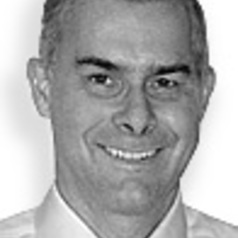
Richard Fairchild
Senior Lecturer in Corporate Finance, University of Bath
I have recently become associate member of the Aston Centre for Research in Experimental Finance (ACREF). I am a member of the SAFE (Seminars in Accounting and Finance) research network. I have recently been appointed as editor-in-chief for the International Journal of Behavioural Accounting and Finance, which is launching in 2008.
My current research interests include: application of game theoretical tools to strategic corporate finance; capital structure and the effects of agency problems, signalling, and product market competition; venture capitalism, bargaining, and the incorporation of behavioural effects into the double-sided moral hazard problem affecting financial contracts and performance; behavioural corporate finance.
Less ![]()
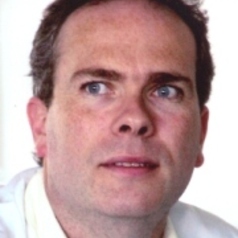
Richard Faragher
Richard Faragher is Professor of Biogerontology at the University of Brighton and is past Chair of both the British Society for Research on Ageing and the International Association of Biomedical Gerontology. He read Biochemistry at Imperial College, London and undertook doctoral studies at the University of Sussex. His primary research interest is the relationship between cellular senescence and organismal ageing.
In 2002 his work on the accelerated ageing disease Werner’s syndrome led to the award of the Royal Pharmaceutical Society Conference Science Medal for outstanding scientific achievement. In 2005 he became the first ever scientist to receive a Help the Aged award for his championship of older people and the use of research for their benefit. In 2010, he became the first ever British recipient of the Paul F Glenn Award for research into the biological mechanisms of the ageing process. He is a visiting Professor at the Moscow Institute of Physics and Technology and serves on the Editorial Boards of "Age" and "Mechanisms of aging and development".
Professor Faragher has served as a member of the Research Advisory Council of the Charity Research into Ageing and on strategy and funding panels for the BBSRC, the US National Institutes on Ageing and the European Union. From 2005-2008 he was Co-director of the BBSRC-EPSRC SPARC programme, a research network designed to build national capacity to conduct inter-disciplinary ageing research. He is currently Chair of the Scientific Advisory Board of the British Society for Research on Ageing and a member of the Board of Directors of the American Aging Association. In 2015 he became president-elect of the latter society and the first British citizen to be elected to the Board of Directors of the American Federation for Aging Research, the leading US non-profit organization supporting and advancing healthy aging through biomedical research.
Less ![]()

Richard Fitton
Richard Fitton is a Lecturer in Energy Efficiency in the School of the Built Environment. He leads the monitoring work undertaken within ABERG and is involved in a number of projects with regards to co-heating, U Value measurement, as well as product and retrofit package testing within the Energy House.
Richard has previously been a Building Surveyor and Energy Manager in the public sector. He also advises on the qualification of SAP Assessors and Green Deal Advisors. Richard was a contributor on the Zero Carbon Hub Testing Work Group for the Closing the Gap Between Design and As-Built Performance project.
Less ![]()
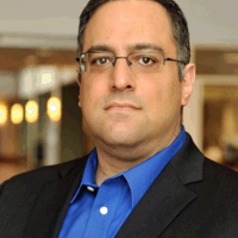
Richard Forno
Senior Lecturer, Cybersecurity & Internet Researcher, University of Maryland, Baltimore County
Dr. Richard Forno is a Senior Lecturer in the UMBC Department of Computer Science and Electrical Engineering, where he directs the UMBC Graduate Cybersecurity Program, serves as the Assistant Director of UMBC's Center for Cybersecurity, and is a Junior Affiliate Scholar at the Stanford Law School's Center for Internet and Society (CIS). His twenty-year career spans the government, military, and private sector, including helping build a formal cybersecurity program for the US House of Representatives, serving as the first Chief Security Officer for Network Solutions, and advising several technology startup companies. Richard also was one of the early researchers on the subject of cyberwarfare and he remains a longtime commentator on the influence of Internet technology upon society.
Less ![]()
- Market Data





















